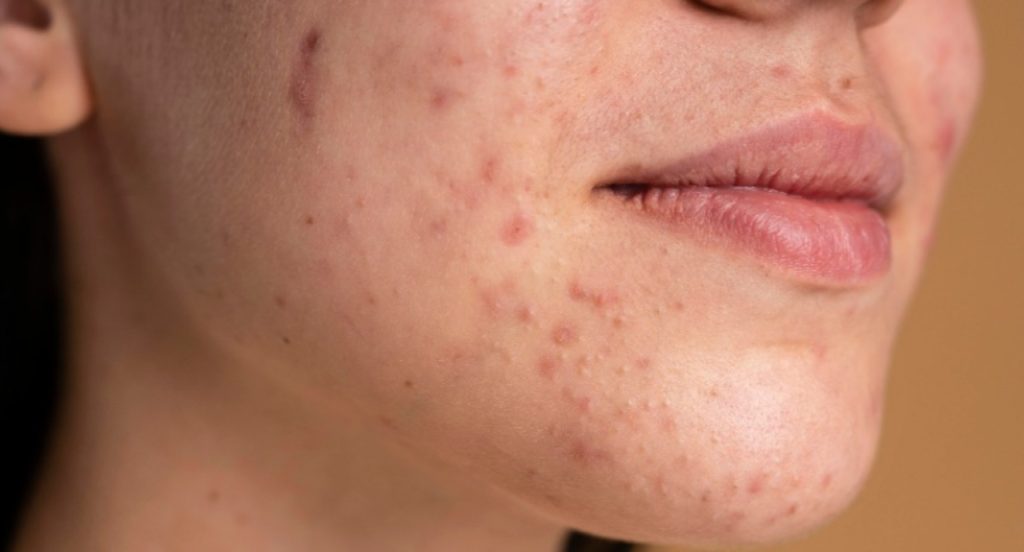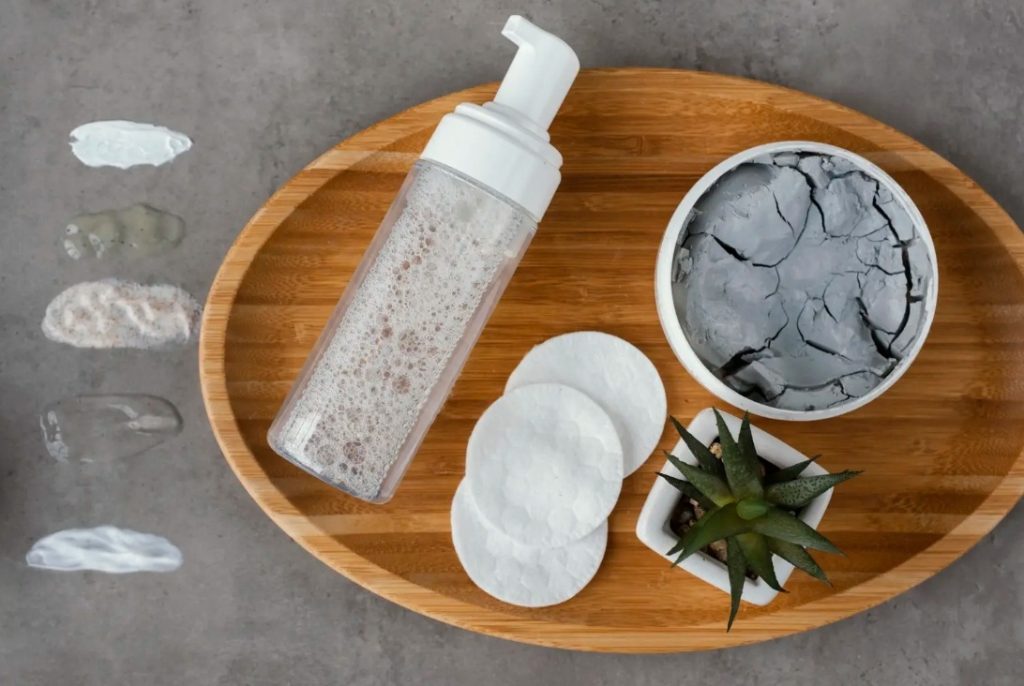If you’ve ever experienced redness during seasonal change, or stinging when applying a skincare product, you’re not alone. These are classic symptoms of sensitive skin. For many, this’s not just a temporary nuisance — it’s a constant struggle that turns even basic skincare into a high-risk endeavor.
But sensitive skin isn’t being “dramatic.” It’s really your skin’s way of putting out a warning signal. If your skin barrier is compromised, it’s like having a broken shield — letting in external irritants and losing moisture instead. That’s why sensitive skin individuals require special attention and care.
As a skin care company, we need to know these particular requirements. And if you are working with an OEM (Original Equipment Manufacturer), then you can formulate non-irritating formula skin care products from the ground up. At BonnieCo, we specialize in helping brands create gentle skin care formulas that can really deliver.
So how do skincare firms ensure their products will do more good than harm? It begins with three science-backed principles.

Principle 1: Simple ingredients — Why Less Is Better in Gentle Skincare
Most people believe that the more ingredients there are in a product for your skin, the stronger it will be. But not with sensitive skin. Here, more is worse. Actually, it’s terrible.
Each new ingredient is a new risk, and a new chance for irritation. That’s why optimal skin care for sensitive skin tends to be based on a “minimalist” approach: take what you need, and stop there.
The Problem with Long Lists of Ingredients
Garden variety irritants such as alcohol, artificial scents, harsh preservatives, and some essential oils can wreak havoc on sensitive skin. Even so-called “natural” ingredients can create allergic sensitivities if the formula is not properly balanced.
And here’s the thing that most people don’t know — even if an ingredient is harmless on its own, it may not get along with others. That’s why shorter, uncomplicated formulas are safer for skin-sensitivity sufferers.
OEM Customization Suggestions for Brands
When you work with a business like BonnieCo, you are able to formulate your own product using our easy formula library. They are basic base formulas with just 10 to 15 carefully selected ingredients. You are then able to determine how you would like to customize your private label skincare product.
You can also ask about other preservatives — such as polyols — that will stabilize your recipe without irritating skin. And with open raw material sourcing, you’ll avoid those hot-button or high-risk ingredients altogether.
Whatever product you’re creating, be it a serum, cleanser, or cream, remember this: simple is not boring. It’s smart. And smart is what your clients are looking for when they seek hypoallergenic skin care or private label sensitive skin care products.
Now that we’ve broken down the ingredients — what else needs special consideration?

Principle 2: The Right pH — supporting the Skin’s Natural Defense
You probably learned about pH in school, but did you know that your skin also has a natural pH? And just like the wrong shampoo can devastate your hair, the wrong pH in skin care can devastate your face.
Your skin surface is a bit acidic — usually between 4.5 and 5.5. That’s to protect it from gross bacteria and seal in moisture. It’s kinda like the “yogurt layer” of your skin, and yes — some experts even compare healthy skin to natural yogurt due to that same pH.
Why Alkaline Products Are Problematic
When the products are too alkaline (pH level above 7), they take away this natural acidity from the surface. That damages the barrier, leading to dryness, flakiness, and even increased sensitivity. The more you try to fix it, the worse it gets — unless you adjust the pH.
OEM Solutions for pH Control
OEM manufacturers like BonnieCo utilize dynamic acid-adjustment technology to maintain each batch of manufacture within the pH range that is optimal. Whether you are making a cleanser, toner, lotion, or essence, we can tailor the pH for each.
We also provide pH buffer testing reports, which are a great trust-builder for your brand. When your label says “pH balanced,” you can substantiate it.
These small things create a significant difference in allowing brands to offer the best sensitive skin skincare products. They also give you a clear edge when you are selling private label skincare in a competitive market.
Now that we’ve talked about the external layer — let’s examine what happens when the skin barrier is compromised.

Principle 3: Barrier Repair — Fixing from the Inside Out
Imagine your skin as a wall. When the wall is intact, it keeps water from escaping and keeps bad things from entering. But when it cracks, water leaks out and irritants enter. That’s exactly what occurs when the skin barrier breaks down — and it’s one of the primary causes of sensitivity.
So how do you fix a “leaky wall”? You build it back — with the right materials.
Star Ingredients for Barrier Repair
The three heavy-hitters that hold the key to it all are fatty acids, cholesterol, and ceramides. Ceramides are the “cement” that bind skin cells together. Together, when in the correct proportion — typically 3:1:1 — they create a robust, protective barrier.
Other valuable ingredients are:
- Panthenol (Vitamin B5): Moisturizes and soothes
- Centella Asiatica: Inflammation reducer
- Allantoin: Helps repair damaged skin
We utilize the nano-encapsulation technology at BonnieCo to push these ingredients deeper into the skin. This maximizes the effectiveness of the formula without adding harsh chemicals.
Step-by-Step Repair Plans
Sensitive skin isn’t only in need of a quick solution — it needs ongoing care. That’s why we help brands create step-by-step repair systems. For example:
- First-aid products (calming creams or masks)
- Each day, moisturizers for ongoing repair
- Serums for strengthening over time
This approach gives your product line more depth and your customers better outcomes. And it makes you a brand that truly understands repairing the skin barrier, as opposed to just covering up problems.
With all of these rules in place, how do you actually bring your product to life?
OEM Customization Guide: From Concept to Shelf
Developing a private label sensitive skin care product is not just about choosing the ideal formula — it’s about having the ideal team in your corner. Below is how BonnieCo supports brands in developing mild skincare formulas that are safe, effective, and loved by customers.
1. Identify Skin Sensitivity Types
Sensitive skin is not one-size-fits-all. There is dry-sensitive skin, and oily or acne-sensitive skin. Your dream OEM partner will assist you in formulating, specifically for each, more effective and more marketable products for your product line.
2. Use Established Testing Methods
We offer a “mildness verification” package that includes:
- ISO-standard patch testing
- Lactic acid sting test
- Clinical trials with real users and lab equipment
This kind of evidence adds value to your brand — and earns your customers more credibility.
3. Balance Cost and Performance
Barrier-repair actives that are expensive, like ceramides, but we help customers find smart alternatives like Panthenol, which is affordable but does not compromise on excellent results. We also provide small-batch pilot production, and you can try out your product before printing in bulk. It is one of the safest ways to minimize risk and refine your product. Whether launching your initial serum or expanding a complete line, collaboration with a private label skin care producer such as BonnieCo means you can personalize with confidence.
Conclusion
Formulating skincare for sensitive skin isn’t about fashion — it’s about trust. It’s about giving customers products that are pleasant to use, that work, and keep them coming back for more.
At BonnieCo, we blend scientific formulas, thoughtful personalization, and total transparency to assist brands in launching high-quality, non-irritating products. From uncomplicated ingredient decks to pH-balanced systems and barrier-repair methods, we turn gentle skincare recipes into tangible results.
If you’re ready to create the finest skincare products for sensitive skin, or are interested in adding private label skincare products to your business, collaborate with a company that is savvy about science and sensitivity.
Because when you’re taking care of delicate skin, “mild and effective” is not a guarantee — it’s a strategy.
BonnieCo, with over 15 years of experience in cosmetics manufacturing and private-label services, specializes in providing OEM/ODM one-stop solutions for your skin and hair care products.
Frequently Asked Questions (FAQs)
1. What makes a skincare product safe for sensitive skin?
Safe skincare for sensitive skin uses a gentle skincare formula with fewer ingredients, no harsh chemicals, and a balanced ph. It also avoids common irritants like fragrances, alcohol, and strong preservatives.
2. Can I create a private label product just for sensitive skin?
Yes! At BonnieCo, we specialize in customizing non-irritating formula skincare products for private label brands. We help you develop formulas that are safe, effective, and designed for different types of sensitive skin.
3. What ingredients should I avoid in sensitive skin care?
Try to avoid alcohol, artificial fragrances, sulfates, parabens, and strong acids. These can irritate the skin and damage the barrier. We help our clients build hypoallergenic skincare formulas that skip these triggers.
4. How important is pH in sensitive skin products?
Very important. The skin has a natural pH between 4.5 and 5.5. A product that’s too alkaline can damage the skin barrier and increase sensitivity. At BonnieCo, we ensure your formulas stay pH-balanced and skin-friendly.
5. Can I create a full skincare line for sensitive skin?
Absolutely. BonnieCo helps brands build everything from cleansers to creams — all designed with sensitive skin in mind. Whether you want to start small or launch a full line, we’re your private label skin care manufacturer.



